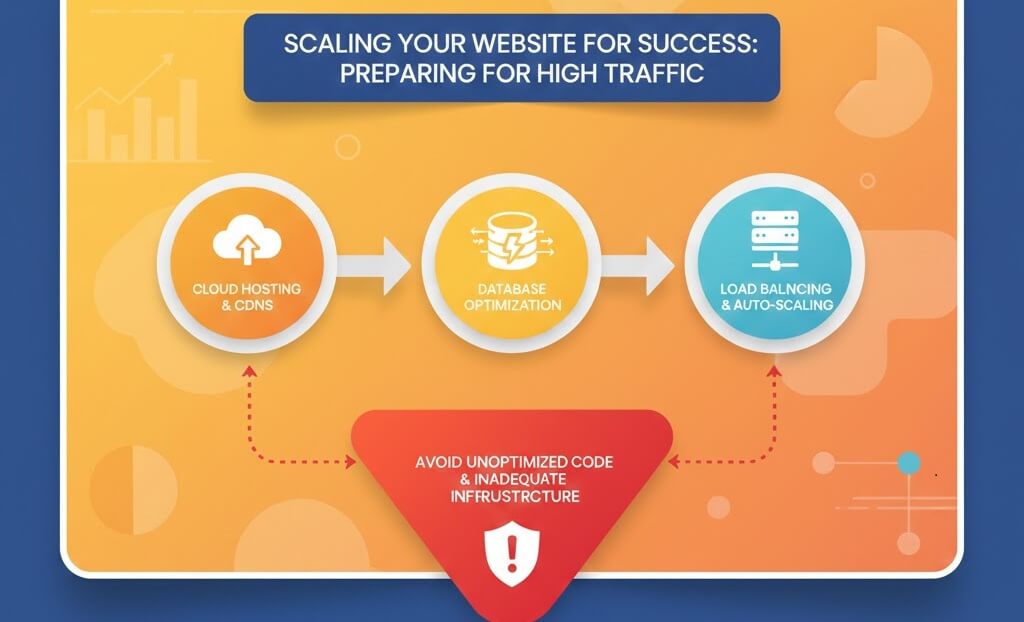Why is My Website’s Search Function Not Working? How to Fix It

A functional search bar is a cornerstone of any user-friendly website. It enables visitors to quickly and easily find the information or products they're looking for. When your website's search function malfunctions, it can lead to frustration, a poor user experience, and lost conversions. This guide will walk you through the common reasons why your website's search function might not be working and provide troubleshooting steps to help you fix it.
1. Indexing Issues
For a website's search function to work effectively, it needs to have an index of your website's content. This index allows the search engine to quickly find relevant results. If the index is outdated, incomplete, or corrupted, the search function will not return accurate results.
How to Fix Indexing Issues:
-
Rebuild the Search Index: Most content management systems (CMS) and e-commerce platforms have a feature to rebuild or reindex the website's search index. Look for this option in your platform's settings or search functionality configuration. This process rescans your website's content and creates a fresh index.
-
Check Indexing Settings: Ensure that the search function is configured to index all the relevant parts of your website, such as product descriptions, blog posts, and pages. Exclude any areas that should not be searchable.
-
Update Search Plugins/Modules: If you're using a plugin or module to power your website's search (e.g., in WordPress or Magento), make sure it's up to date. Updates often include bug fixes and improvements to indexing capabilities.
The Importance of Regularly Updating Website Plugins and Themes/
2. Search Algorithm Problems
The search algorithm determines how the search function matches user queries to your website's content. If the algorithm is not configured correctly or has limitations, it might not return relevant results, or it might fail to find anything at all.
How to Fix Search Algorithm Problems:
-
Adjust Relevance Settings: Many search functions allow you to adjust settings that control the relevance of search results. You might be able to prioritize certain fields (e.g., product titles over descriptions) or configure how closely the search query needs to match the content.
-
Implement Fuzzy Search: If your search function doesn't support fuzzy search, it might fail to find results when users misspell words. Consider enabling or implementing fuzzy search to provide more tolerant search matching.
-
Add Synonyms and Stop Words: Configure synonyms to ensure that searches for related terms (e.g., "sofa" and "couch") return the same results. Implement a list of stop words (e.g., "the," "and," "is") to exclude common words that can clutter search results.
-
Consider Advanced Search Solutions: If your website requires robust search functionality, you might need to invest in a more advanced search solution, such as a dedicated search engine or a more powerful search plugin.
3. Database Issues
Like many other website functions, the search relies on the website's database. If there are database errors or connectivity problems, the search function might not be able to retrieve or process data correctly.
How to Fix Database Issues:
-
Check Database Connection: Verify that your website can connect to the database. Database connection errors can prevent the search function from querying the necessary information.
How to Identify and Fix Database Connection Errors on Your Website/
-
Optimize Database Performance: A slow or overloaded database can cause search queries to time out or return errors. Optimize your database by cleaning up unnecessary data, indexing database tables, and ensuring that your server has sufficient resources.
-
Repair Database: In some cases, database corruption can interfere with search functionality. Use database repair tools (often provided by your hosting control panel or CMS) to fix any errors.
4. Coding Errors
Errors in your website's code, particularly in the search form or search results page, can prevent the search function from working correctly. These errors might be caused by incorrect HTML, CSS, JavaScript, or server-side code.
How to Fix Coding Errors:
-
Validate HTML and CSS: Ensure that your search form and results page have valid HTML and CSS code. Invalid code can cause display issues or prevent the search form from submitting correctly.
-
Check JavaScript Functionality: If your search function uses JavaScript (e.g., for AJAX search), debug your JavaScript code to identify and fix any errors that might be preventing it from working.
-
Review Server-Side Code: If you have custom search functionality implemented using server-side code (e.g., PHP), carefully review the code for any errors in the logic or syntax.
5. Caching Issues
Website caching can sometimes interfere with the search function. If the search results page is cached, it might display outdated information or fail to reflect recent changes to your website's content.
How to Fix Caching Issues:
-
Clear Website Cache: Clear your website's cache to ensure that the search results page is generated with the latest data. Many CMS and caching plugins provide options to clear the cache.
-
Exclude Search Pages from Caching: Configure your caching settings to exclude search results pages from being cached. This will ensure that the search results are always dynamically generated.
Troubleshooting a broken search function requires a systematic approach. By addressing these common issues, you can restore the search functionality on your website and provide a better user experience. If you need further assistance with diagnosing and fixing search-related problems, contact WebCareSG for professional support.
Related WebCare Solutions
Scaling Your Website for Success: Preparing for High Traffic
A technical guide on preparing your website infrastructure for traffic spikes, covering load balancing, database optimization, and cloud scaling strategies.
The Importance of Regularly Updating Website Plugins and Themes
Learn why regularly updating your website plugins and themes is crucial for security, performance, and compatibility. A must-read for every website owner.
Why Does My Website Look Different on Phones? (Testing Tools, Common Mobile Bugs)
Detailed guide explaining why websites might display differently on mobile devices, covering testing tools and common mobile-specific issues with solutions.
Ready to get started?
Focus on your business while we fix your website. Contact WebCareSG today for fast, reliable solutions!
Whatsapp us on


